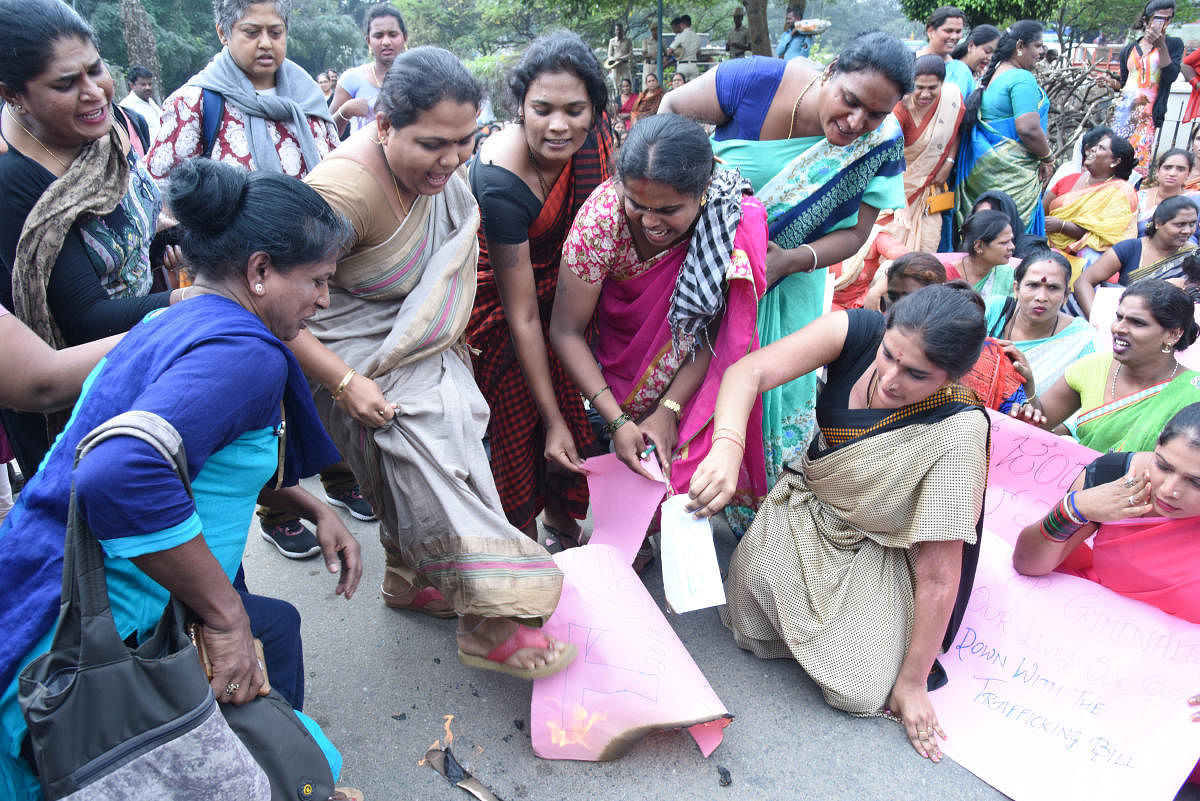
It was a show of strength by the transgender community at Town Hall on Wednesday morning.
About 150 activists and academics came together to raise their voice against the Transgender Persons (Protection of Rights) Bill and the Trafficking of Persons (Prevention, Protection and Rehabilitation) Bill of 2018.
Protesters said sections of the proposed laws were so regressive they would unleash more violence against the transgender community. They raised slogans demanding that the bills, now in parliament, be repealed.
The transgender community was not consulted during the drafting, says Anirudh Gupta, activist and member of the transgender community.
“The main thing is that the trafficking bill does not change the existing laws. The new bill is targeting the marginalised community, especially sex workers, and does not provide any redressal cell,” he told Metrolife.
The proposed law confers unlimited powers on the police and the magistrates. “They have the power to remove any person from a situation that they consider dangerous and throw them into rescue and rehabilitation. But we see these operations as disadvantageous because that’s where all the abuse takes place,” he says.
Unemployment and lack of education are what drives transgenders to sex work and begging, says Sana Suman, a transgender.
“I’ve had horrible experiences working in two software companies. They scrutinise your dress, colour, and caste, and scan your identity. The moment they came to know about my identity, they threw me out,” says Sana.
She says the new laws must highlight the community’s concerns. “They are making decisions without consulting us. This is a shame to democracy,” she says.
Story after sex change
Jhanvi Rai underwent castration (sex change surgery) when she was in college, hoping to lead a normal life. She got a job in a software company. “The first day at work came as a shock because the first question they asked me was why I was dressing like a woman if I was a man.
I found this question humiliating. They immediately called the security and threw me out,” she recalls. Deepika was disowned by her family and then sacked
from her workplace because the higher-ups thought she was “contaminating our office culture.” When she signed up for work, she found a category called ‘others’ and was instructed to check that column. “I would like to know what ‘others’ means. Animals, or furniture? We want to be treated as human beings, we want education, and secure jobs just like anybody else,” she says.